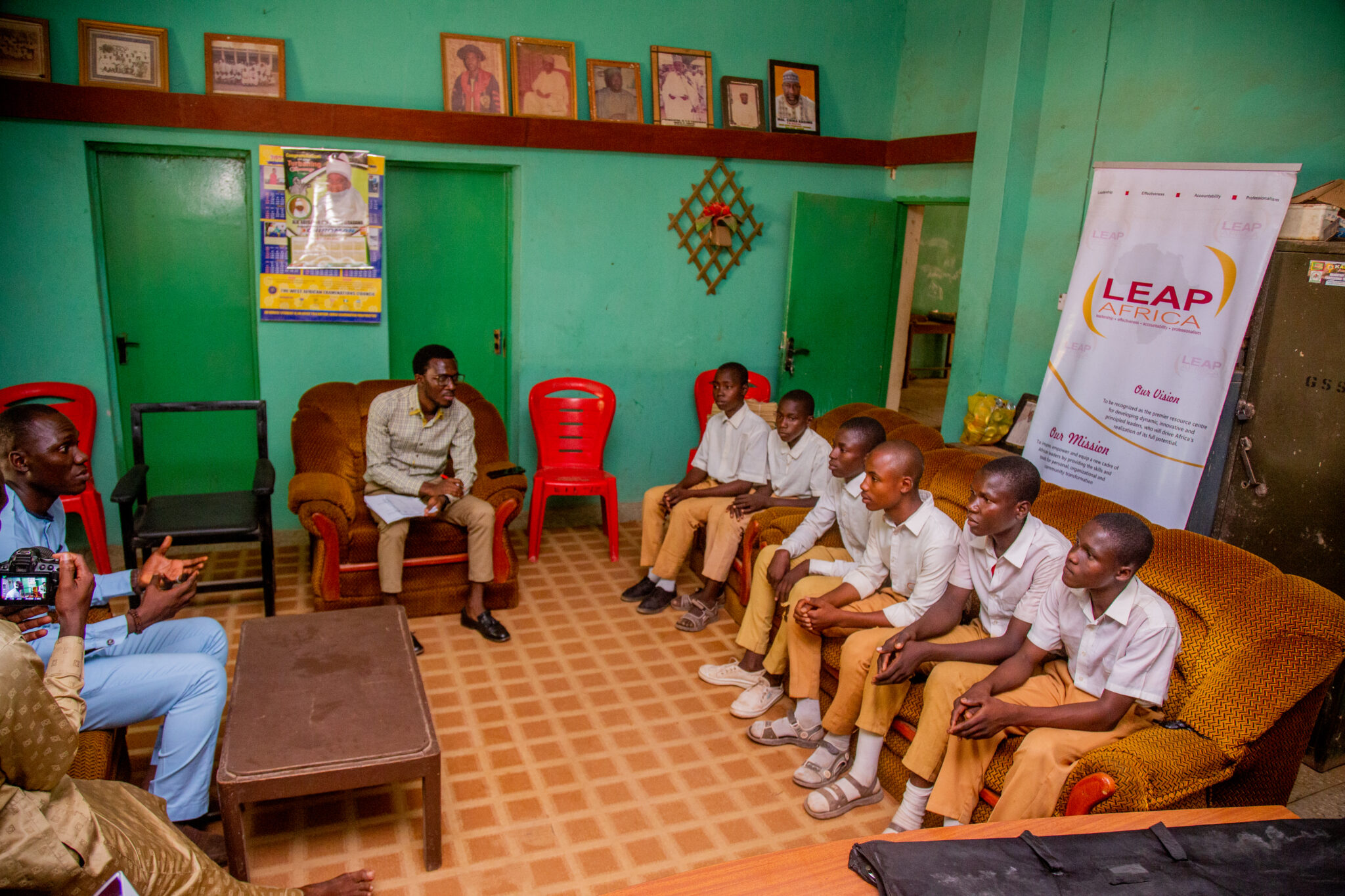School-based Empowerment Scheme in Nigeria: Impacts on Learning, Aspirations, and Labor Market Outcomes

Photo: Focus Group Discussion with Secondary School Teachers and Students during a iLEAD sensitization session by LEAP Africa
Study Context
Despite Nigeria’s existing policies aimed at boosting youth and graduate employment outcomes, there continues to be persistent joblessness and gaps in the labor market. In this context, the iLEAD program, launched by LEAP Africa, aims to provide secondary school students with soft skills training to bridge the gap between school education and workplace realities by engaging teachers, school administrators, and graduates on leadership and life skills.
The study will set the pace for a pilot study that evaluates the impact of the iLEAD program on relevant outcomes and assesses its potential to contribute to socio-economic improvements. This study will analyze the mediating effects of teachers and instructors as role models to students in the course of school-based empowerment-entrepreneurship support interventions on academic and non-academic performance.
Despite Nigeria’s existing policies aimed at boosting youth and graduate employment outcomes, there continues to be persistent joblessness and gaps in the labor market. In this context, the iLEAD program, launched by LEAP Africa, aims to provide secondary school students with soft skills training to bridge the gap between school education and workplace realities by engaging teachers, school administrators, and graduates on leadership and life skills.
The study will set the pace for a pilot study that evaluates the impact of the iLEAD program on relevant outcomes and assesses its potential to contribute to socio-economic improvements. This study will analyze the mediating effects of teachers and instructors as role models to students in the course of school-based empowerment-entrepreneurship support interventions on academic and non-academic performance.
Study Design
The iLEAD program will be evaluated across two phases: a pilot survey and a subsequent randomized evaluation. The mixed-method pilot survey will be conducted in a subset of schools in Sokoto State, Nigeria, and will be targeted towards students, teachers, and education stakeholders. The selection of schools will be based on administrative data, mapping, and logistical considerations. Following the pilot survey, a full-scale RCT will include the random assignment of selected schools to an intervention group that will receive the iLEAD program and a second group that will not.
The evaluation will assess short-term learning gains on human capital formation, aspirations, and labor market outcomes of the beneficiaries. It will also investigate the potential long-term effects of the program on socio-economic outcomes.
Results and Policy Lessons
Results forthcoming.

